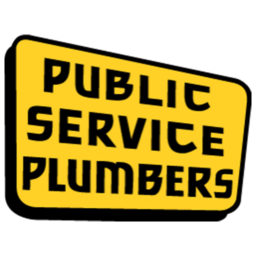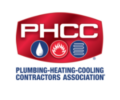Water pressure issues in your home can be frustrating, especially when showers become less relaxing and laundry cycles take longer to complete. Low water pressure widespread in your neighborhood is likely controlled by the city. Problems isolated to your home or specific fixtures can be pinpointed and resolved if you know what to look for.
At Public Service Plumbers, home of your go-to Dallas plumbing services, we can help you determine the cause of low water pressure and fix it right away! Keep reading to learn about common causes of low water pressure.
Water Control Valves
Most houses have two major valves that control water to the home – the water meter valve and the main house shutoff valve. These valves affect water pressure in your home when closed or partially opened.
If you had recent plumbing or repair work done and are now noticing reduced water pressure, check your valves. It is possible one was not fully opened back up once work was complete. Reopening it will solve the problem.
The water meter valve is usually controlled by water company personnel, but your main house shutoff valve is easier to access. On a valve controlled by a lever, the lever should be parallel to the pipe (not at an angle) to be fully open. Valves controlled by a wheel should get turned counterclockwise completely (but not too tight) to fully open.
Failing Pressure Regulator
In areas with high water pressure, a pressure regulator gets installed in homes near the main shutoff valve. Extremely high water pressure can strain fixtures when uncontrolled, causing them to break. These regulators are designed to maintain safe, constant water pressure. This prevents water damage to your plumbing system, fixtures, and home.
The regulator’s setting may cause low water pressure in your home and can be adjusted. But if you are suddenly experiencing very low or high water pressure in every fixture, it may be failing. A licensed plumber can repair or replace a regulator to return the water pressure in your home to a normal level.
Appliance Use
If you find that the water pressure in your home is only low during specific days or times, think about what other appliances are in use. Running many appliances that use water at the same time (a dishwasher, washing machine, sprinkler, etc.) while you are also showering impacts how quickly water reaches other areas of the home. This can result in low water pressure.
The best way to fix this is to space out your water use each day. Stagger your schedule so that, for example, you take a shower before turning on the dishwasher, then wash laundry and water your yard in the evening.
Problems Within The Piping
Investigating external causes of low water pressure is a great place to start your search for a plumbing solution. When the above situations don’t resolve your water issues, the problem may be inside the piping. This is much harder to detect and more expensive to fix.
Debris Buildup
A blockage within the pipes can easily impact water pressure. Any debris, such as solidified oil/grease, food, dirt, and minerals, can stick together over time and form a gum-like clog. That clog will prevent water from flowing through the pipe, lowering water pressure.
Clogs can occur anywhere within the pipeline. The only way to pinpoint their location and explore repair options is to call a plumber for testing.
Corrosion
Water oxidizes metals, causing corrosion to collect on pipe walls as they age. This is especially common in older homes with piping made of galvanized steel, copper, or brass.
Because corrosion develops inside pipes over decades, water pressure won’t drop overnight. Unless you have moved into an old home with corroded pipes already causing low water pressure, you may not notice the impact until the pipe is completely closed off.
A significant restriction in water flow is not the only effect of corrosion buildup. In extreme cases, it will form holes in metal piping. A corroded pipe that has completely failed requires re-piping to restore water flow.
Leaks
Damaged, leaking pipes can also cause low water pressure. Leaks divert water from where it’s meant to go, causing it to flow out of the pipe instead of to your fixtures. A leak misdirecting enough water to affect water pressure may form visible wet spots or random pools of water in or around your home.
Call a plumber as soon as you suspect a leak in your pipes. Un-repaired leaks can contaminate drinking water or damager your foundation.
We Can Handle The Pressure!
If you have problems with low water pressure in your home, contact our experts at Public Service Plumbers! We have installed and repaired the most intricate plumbing systems in DFW since 1959 and can restore your home’s water pressure and peace of mind!






